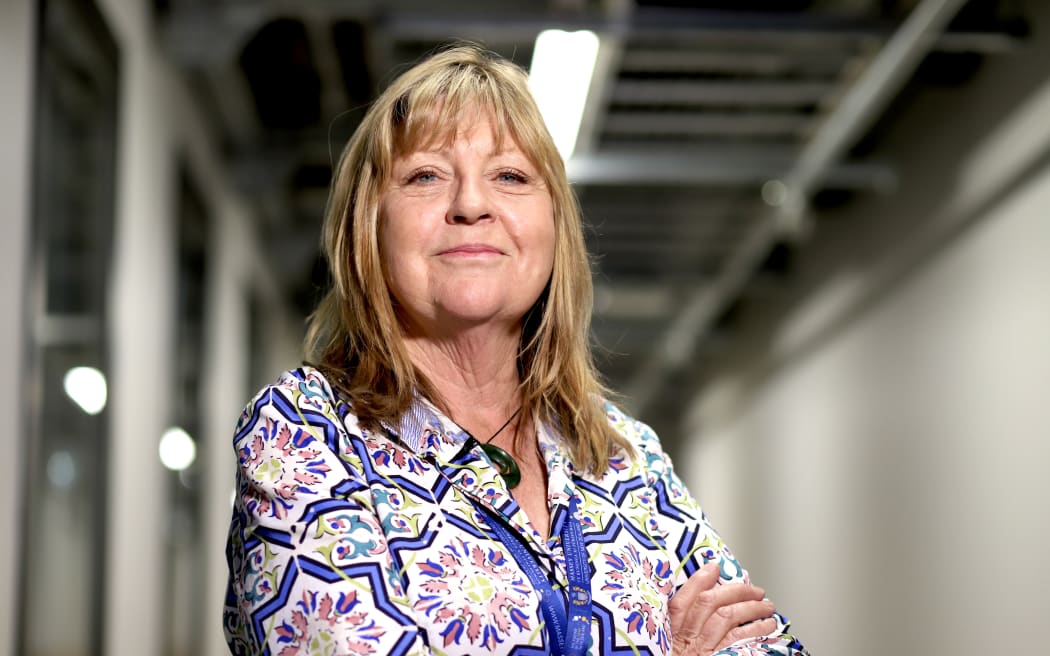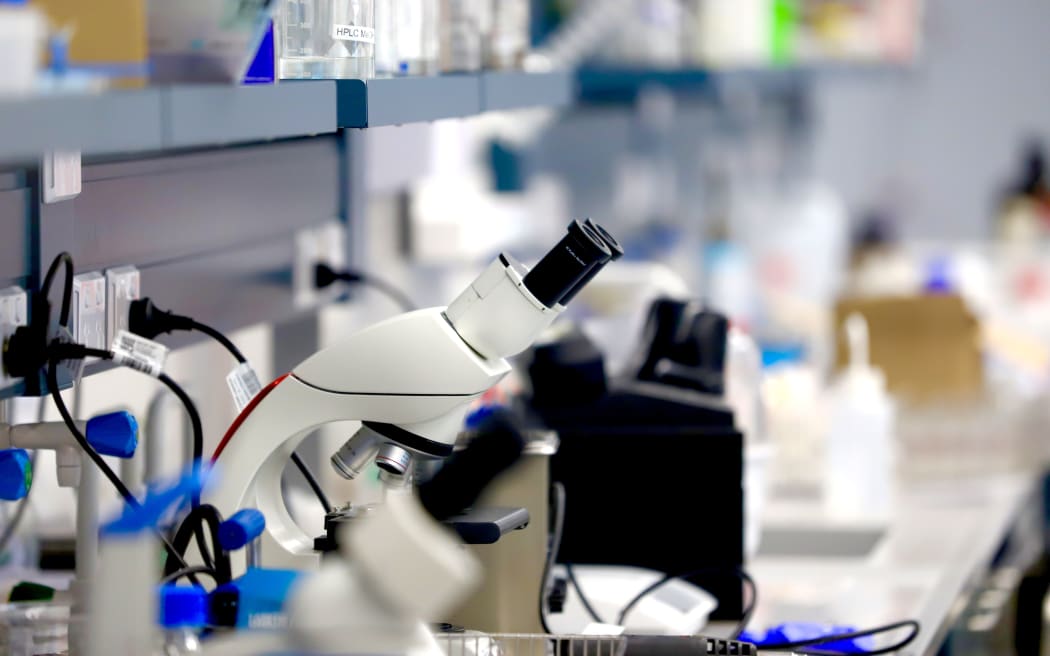By Jimmy Ellingham, RNZ Checkpoint reporter
Science staff and students at Massey University in Aotearoa New Zealand are fighting to save their jobs, and their studies.
The cash-strapped university is proposing to slash science courses from its Albany campus, which would hollow out a new high-tech building full of specialised labs.
It is part of Massey’s scenic grounds on Auckland’s North Shore, which are shrouded with an air of uncertainty as proposed job cuts hang over this campus.
More than 100 jobs are on the line at Massey, the Tertiary Education Union (TEU) says, including from the schools of natural sciences, and food and advanced technology — programmes that would cease to exist in Auckland.
Only a year ago, a new Innovation Complex opened its doors in Albany, reportedly costing $120 million. The university would not confirm the price.
It was to be called the Innovation and Science Complex, but the science part of the name was quietly dropped, although it remains on some signs in the building.

Professor Dianne Brunton — a specialist in conservation biology whose job is on the line — showed RNZ what the complex had to offer this week.
Building for the future
“This space — all of these labs, the whole building, really, is a building for the future, a building for the next 20 to 40 years,” she said. “And [for the] students and the staff and the growth we’ll see in the sciences here on the North Shore, where the population is just ballooning.
“It’s not going to stop. It’s just going to keep going.”
Staff and students have until Friday to have their say on Massey’s science proposals as the university deals with an expected shortfall of about $50 million for the year.
“We were in little huts. They were temporary buildings and they were fitted out,” Professor Brunton said of the previous office and lab space.
“They were like Lockwood houses, if you remember that far back. They’re little prefabs, but they worked.
“In fact, some of the best covid work was done on that campus by researchers that were here with us then, and they’ve since gone.”
Professor Brunton said Albany staff were determined to offer solutions to the university, and work with it so they could remain, including on how they pay to use their space.
Floor space rented out
Massey effectively charges rent for floor space to its colleges, and science takes up room.
“There are some solutions to that and one of them is to have biotech companies in. We’ve had a number of biotech companies working in the molecular lab, basically leasing it out,” Professor Brunton said.
“We’ve got lots of ideas about other things, but the instability that we’re seeing at the moment makes that a bit tricky.”
The Innovation Complex is an award-winning building, and a leader in its field.
“It’s not just a science building — make that clear. There’s lots of student space, work space, flexible teaching space, but really state-of-the-art, really efficient labs,” Professor Brunton said.
Among its jewels are a chamber for detecting spider vibrations and a marine wet lab which allows for experiments using live animals thanks to a reticulated salt water system.
In the previous buildings, buckets of salt water sourced from the sea had to suffice.

Specialised spaces
Professor Brunton said she did not know what would happen to specialised spaces or equipment if the Massey proposal went through.
“Some of these pieces of equipment are not the kind a local company could come in and use.”
Staff had to have hope the proposal would not go through, she said.
She also raised concerns about the quality of the financial information made available on which staff and students could make submissions.
Many students are in limbo due to the threat to cut courses from the Albany campus.
Third-year food technology student Cynthia Fan, 21, said those affected were trying to prepare for exams, while worrying about where they would be next year and organising submissions.
Under the proposal, food technology students were among those who might have to continue their studies at Palmerston North, unless Massey decided to stagger the cessation of the courses in Albany.
“The thing that really sucks is I have no idea and we have no idea. The uni has said that they will not speak to students,” Fan said.
Fan would like to see the university focused on helping its students.
“I think in the first week [after the proposal was announced] everyone was hard panicking. I think a lot of people missed lectures because they didn’t have energy.”
‘Financial sustainability is urgent,’ university says
In a statement, Professor Ray Geor, pro vice-chancellor for Massey’s College of Sciences, said the university’s financial statements were inspected and approved by Audit NZ.
“During a financial year, it is expected there could be adjustments. Additionally, during the close-inspection focus of the proposal for change processes, we expect there will be refinements of information,” Professor Geor said.
“Organisational finances are never static. However, we are confident that adjustments will be minor and not substantive to the financial drivers for the need for a proposal for change,” he said.
“As we are funded by taxpayers, part of being a financially responsible organisation is exploring revenue streams, as many tertiary education providers are doing within New Zealand.
“Staff can provide avenues for exploration and the College of Sciences will consider all feedback. However, the need to reduce costs and generate income to ensure financial sustainability is urgent for this year and for the near term — 2024-2027.”
This article is republished under a community partnership agreement with RNZ.
Article by AsiaPacificReport.nz





